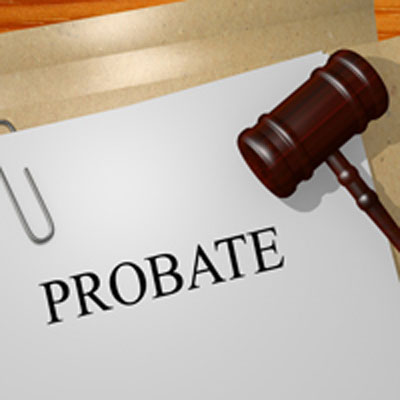Probate is the process used to determine how a deceased person’s assets will be distributed. If the decedent’s will names an executor, that person will oversee the process. If not, it is managed in probate court. Probate is one of several different ways an individual can pass their assets on to surviving loved ones; it can take anywhere from six to 18 months to complete. Probate involves not only collecting and accounting for the decedent’s assets, put paying bills, taxes, and other debts related to them as well.
Petition to Initiate Probate
In the county where the deceased person resided at the time of their death, you must file a petition to begin the probate process and be named as the legal executor of the estate. This requires a copy of the death certificate and will if available. From there, a hearing is scheduled to name the executor. As an executor, you will act on behalf of the decedent regarding their estate. Executors are required to mail a notice of the probate process to all heirs, beneficiaries, and creditors. Some states also require a public notice of probate to be published in the local newspaper.
Inventory Assets
At this step in the probate process, all assets are to be accounted for, appraised, and presented to the court. They include:
- Bank accounts
- Real estate holdings
- Personal effects
- Retirement funds
- Stocks and bonds
Pay Bills and Debts
At this stage, you will collect any money owed to the estate, such as employment paychecks, rent, and other income, and determine what bills and other expenses need to be paid. You can gather this information from bank accounts, emails, and financial records. As an executor, you are also required to pay a final tax income return on the estate. Once all outstanding debts and expenses have been paid, any remaining assets can now be distributed to the appropriate heirs, as established in the will.
Close the Estate
After all these actions have been completed, it is time to close the estate. Once all relevant receipts and records have been recorded in probate court, the estate is closed, and you are released from your role as executor. If the deceased person did not have a will, the Register of Wills determines who will be named as administrator of the estate. As the executor or administrator of a deceased person’s estate, you will adhere to Pennsylvania laws regarding probate and the distribution of assets. For that reason, it is always smart to seek guidance from an experienced wills and estates lawyer throughout the process.
Chester County Wills and Estates Lawyers at Eckell Sparks Guide Clients Through the Probate Process
If you have questions about how to protect your estate for your children and their future or you have been named the executor of a loved one’s estate, contact a Chester County wills and estates lawyer at Eckell, Sparks, Levy, Auerbach, Monte, Sloane, Matthews & Auslander, P.C. for probate assistance. We understand probate laws in Pennsylvania and can help you manage your estate efficiently so you can focus on the future. To schedule a free consultation, call us today at 610-565-3701 or contact us online. Located in Media and West Chester, Pennsylvania, we represent clients throughout Delaware County, Chester County, and Montgomery County.

